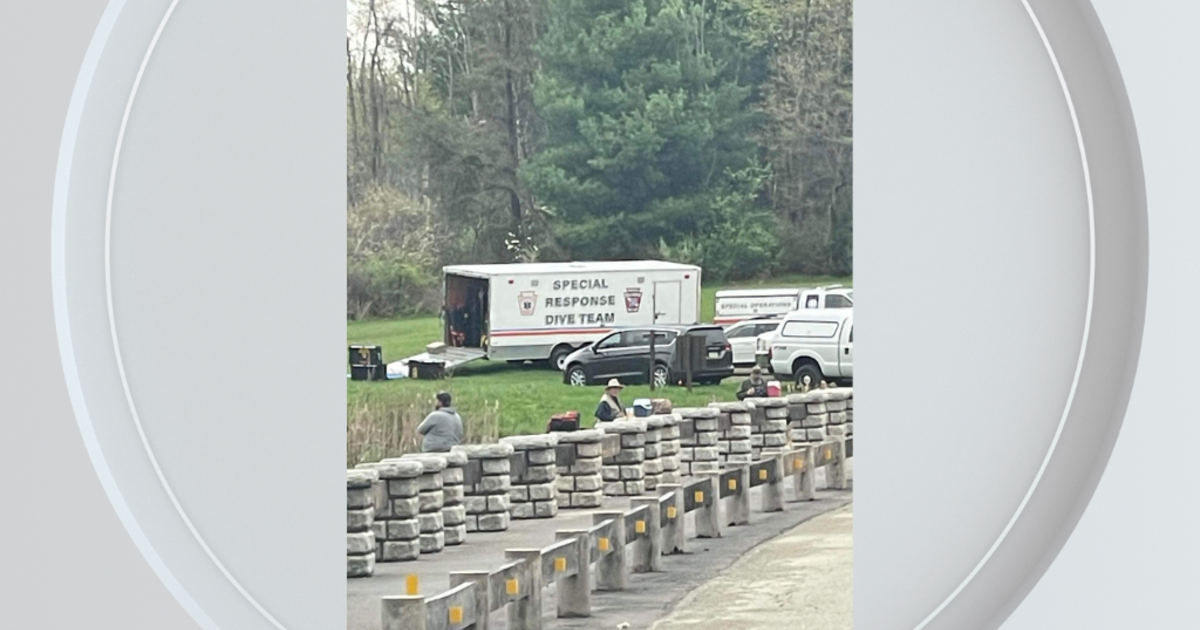Pennsylvania's State Supreme Court Eyes How To Pick House Districts Map
HARRISBURG, Pa. (AP) — Ranks of lawyers packed the courtroom of Pennsylvania's state Supreme Court on Friday, with most of them arguing for their clients' preferred map of new congressional districts as justices weighed how to decide which one is best.
Meanwhile, justices did not necessarily embrace a Republican-backed map recommended by a lower court judge, but viewed by Democrats in the presidential battleground state as blatantly partisan.
The justices on Pennsylvania's Democratic-majority high court repeatedly said they did not want to have the political task of picking a map in the once-a-decade exercise of adjusting for demographic shifts.
Still, they are faced with more than a dozen maps, drawn primarily by partisans, and are stuck with the decision because of deadlock between Democratic Gov. Tom Wolf and the Republican-controlled Legislature.
One thing seemed clear: justices will not give any special deference to the recommended map just because it passed the Legislature.
Rather, they searched for a non-partisan and neutral basis on which to select a map, a quest that could elevate maps produced by non-partisan groups.
Justice Kevin Dougherty, a Democrat, pressed a lawyer for Senate Republicans to recommend how the court can find a "judicially neutral" way to make a political decision.
"This court tries to stay away from politics," Dougherty told the lawyer. "We've repeatedly said, 'we're forced to do this.' We're now faced with the development of some type of standard to consider a plethora of maps for which all stipulate are constitutional."
Oral arguments lasted about five hours, with a decision under time pressure from the primary election schedule.
Political control in Washington is at stake, as courts and lawmakers in many other states hash out the boundaries of congressional districts to last for a decade, through 2032.
Complicating Pennsylvania's map-drawing is the fact that the state is losing a congressional seat — going from 18 to 17 seats in the U.S. House — because of comparatively slow population growth reflected in the 2020 census.
Pennsylvania's delegation is currently split evenly, nine Democrats and nine Republicans, and registered Democrats outnumber Republicans by 4 million to 3.4 million.
For much of the time, justices questioned lawyers before them as to which criteria is best to use when choosing among maps.
The debate often involved the question of whether to split Pittsburgh between two districts.
The justices also faced the question of what to do with the recommendation by Commonwealth Court Judge Patricia McCullough, a Republican, who elevated a map advanced by Republican lawmakers over maps proposed by Wolf, Democratic lawmakers, partisans on both sides and civic-advocacy groups.
In her report, McCullough gave extra deference to it because it passed the Legislature. Still, Wolf vetoed it, not a single Democratic lawmaker voted for it and Democrats broadly view it as a partisan map that would tilt the delegation solidly to the GOP.
Lawyers for Republican lawmakers maintained that McCullough made the correct decision, but justices were not persuaded by McCullough's logic.
"I struggle with Judge McCullough's articulation that somehow, some way that represents the will and the voice of the people and that Gov. Wolf's veto also doesn't represent the will and the voice of the people," Justice Kevin Brobson, a Republican, said.
Later, Justice Christine Donohue, a Democrat, said "we are all in agreement that neither of those two plans deserve any deference," referring to the one backed by Republican lawmakers and one submitted by Wolf.
Justices also did not seem persuaded by Republican lawyers' arguments that their map is superior because it was produced after holding public hearings and taking public comment, despite the governor's veto.
Dougherty dismissed that, saying "whoever has the public hearing wins, and so we have both parties having public hearings excluding the other and no process."
Chief Justice Max Baer, a Democrat, then questioned a lawyer whether maps produced by non-partisans have a "leg up" because they came from a superior process.
He specifically referred to ones produced by Draw the Lines, a project of Philadelphia-based good government group Committee of Seventy, and a group of academics who teach in Pennsylvania and specialize in math, computer science, statistics, geography and data.
While it considers the maps, the state Supreme Court has indefinitely postponed the period for candidates to circulate petitions to get on the May 17 primary ballot.
Justices also could delay the primary election.
(Copyright 2022 The Associated Press. All rights reserved. This material may not be published, broadcast, rewritten or redistributed.)



